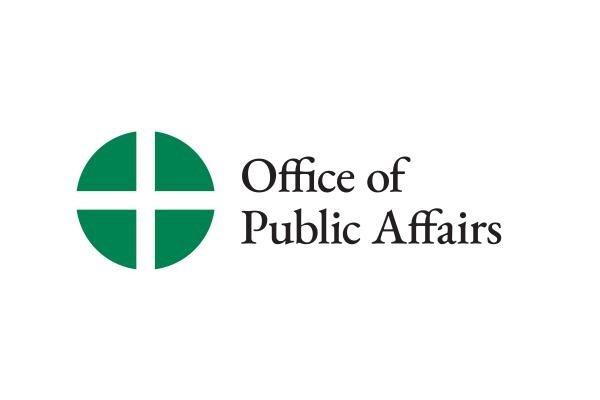Catholic College Influences Choice To Become Nun, Brother, Suggests Cara Study
WASHINGTON—Catholic education inhigh school and especially in college stands out as a significant factor in menand women choosing to enter a religious order, according to an annual survey ofSisters and Brothers who recently professed perpetual vows.
WASHINGTON—Catholic education inhigh school and especially in college stands out as a significant factor in menand women choosing to enter a religious order, according to an annual survey ofSisters and Brothers who recently professed perpetual vows. The survey alsofound an increase in Asians, particularly Vietnamese, choosing religious lifein the U.S.
Thedata are found in "New Sisters and Brothers Professing Perpetual Vows inReligious Life," a report on a survey conducted by the GeorgetownUniversity-based Center for Applied Research in the Apostolate (CARA). Thesurvey was commissioned by the U.S. bishops' Secretariat of Clergy, ConsecratedLife and Vocations. It can be found at www.usccb.org/consecratedlife.
Researcherssurveyed religious who professed perpetual vows in 2012, reaching a total of108 sisters and 24 brothers, a response rate of 85 percent of the 156 potentialmembers of the Profession Class of 2012 identified to CARA by their religioussuperior.
Major findingsinclude the following:
- The average age of religious of the Profession Class of 2012 is 39.Half are 37 or younger. The youngest responding sister is 23; the oldest 66. Eight women professed perpetual vows at age 60 or older. Among brothers, the youngest is 25 and the oldest, 62; two professed perpetual vows at 60 or older.
- Over two-thirds (69 percent) of the class identify as white, nearly one in six (15 percent) identifies as Asian, and almost one in ten (8 percent) identifies as Hispanic. In general the Class of 2012 has a larger percentage of Asians and much lower percentage of Hispanics than the percentage of Asians and Hispanics found in the U.S. Catholic population at large.About two percent of U.S. Catholics are Asian and at least a third are Hispanic.
- Most (71 percent) were U.S.- born. Of those born outside the U.S., the most common country of origin is Vietnam (8 percent). Respondents identified 18 different countries of origin.
- About four in ten religious (43 percent) attended a Catholic elementary school, about the same as that for all U.S. Catholic adults (42 percent). These respondents, however, are more likely than other U.S. Catholics to have attended a Catholic high school (36 percent of the religious, compared to 22 percent of U.S. adult Catholics overall) and much more likely to have attended a Catholic college (33 percent of the religious, compared to just 7 percent of U.S. adult Catholics overall).
- The religious are highly educated. Twenty-two percent earned a graduate degree before entering their order (including 37 percent of brothers and 19 percent of sisters/nuns).Six in ten (60 percent) entered their order with at least a bachelor's degree or more (58 percent for women and 70 percent for men).
- Most religious did not report that educational debt delayed their application for entrance to their institute.For those who did, they averaged two years of delay while they paid down an average of $19,500 in educational debt.
- Over eight in ten religious (82 percent) had work experience prior to entering their religious institute. Women are more likely than men to have been employed in education or health care. Men are more likely to have been employed in business or church ministry.
- Many religious were active in parishes before entering their institute.Almost half (45 percent) participated in youth ministry or a youth group. One quarter (25 percent) participated in a young adult ministry or group, Catholic campus ministry/Newman Center, and/or World Youth Day.
- Almost nine in ten (88 percent) had ministry experience before entering their religious institute, most commonly in faith formation (46 percent). Women were more likely to participate in faith formation or liturgical ministries (except altar servers), while men more commonly reported hospital or prison ministries, altar server, or teaching in a Catholic school.
- On average, responding religious report that they were 20 years old when they first considered a vocation, but half were 18 or younger when they first did so.
- Eight in ten (82 percent) say they were encouraged to consider religious life by someone. Responding religious ranked parish priests highest for their support (44 percent of women and 58 percent of men), with encouragement from religious sisters and brothers coming second (43 percent for women 38 percent for men).
- The women who responded to the survey represent 64 religious congregations, provinces or monasteries. The brothers come from 19 different congregations, provinces, or monasteries.
---
Keywords: vocations, U.S. Bishops, U.S. Conference ofCatholic Bishops, Center for Applied Research in the Apostolate, CARA, Sisters,brothers, monks, monasteries, convents, Catholic education
# # ## #
MEDIA CONTACT ONLY:Sr. Mary Ann WalshO: 202-541-3200M: 301-325-7935Email
